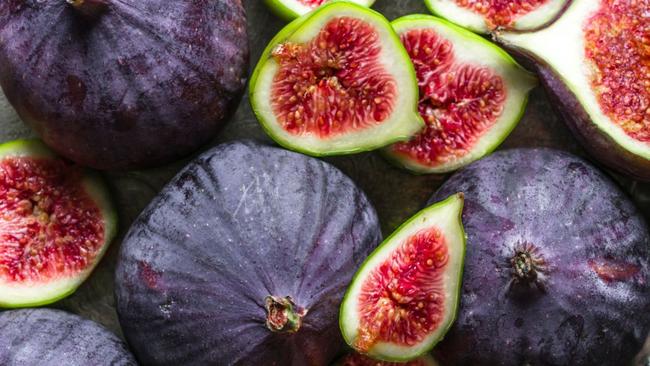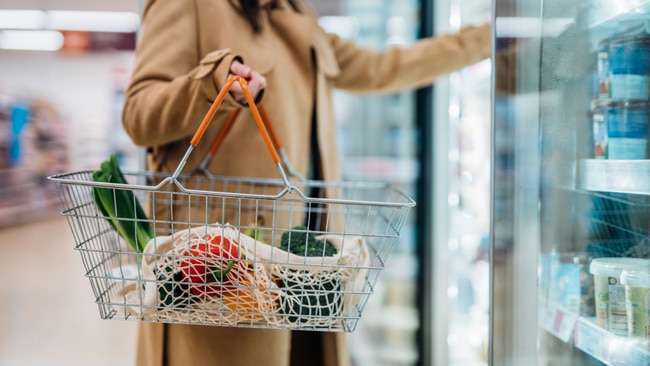What is allulose, and should it be on your shopping list?
It's a sweet deal

Lifestyle
Don't miss out on the headlines from Lifestyle. Followed categories will be added to My News.
The experts have called out artificial sweeteners for being bad for our health, but what if we told you there was an alternative that's naturally derived from sugar itself, with just a fraction of the calories? Meet, allulose.
Having a sweet tooth might not be such a bad thing, now that an unearthed sweetener by the name of allulose has come to the surface.
According to the experts, it can aid in weight loss and safe-keep your teeth, all while mimicking the flavour profile of real sugar, without any of its downsides (which as we know, there are many).
Here's everything you need to know about the sweetener, and why people say it could be a game changer for health.
Like what you see? Sign up to our bodyandsoul.com.au newsletter for more stories like this.
What is allulose?
Discovered in the 1940s, allulose kept a very low profile until 2015, when it became available in granulated and liquid form. But even then, it was virtually non-existent in the shopping aisles.
Fast-forward to 2023, and we’re seeing allulose around more and more, with people making the swap to natural sweeteners – away from artificial sweeteners, and even sugar itself.
So what actually is it? Think of allulose as the diamond amongst lower-grade gemstones. Also referred to as D-psicose, it’s a naturally occurring sugar (meaning, not an artificial sweetener) and the simplest form you can find. It's found in just a few foods like figs, raisins, wheat, and molasses.
What's so good about allulose?
While it mimics the appearance and chemical properties of sugar – a similar texture, reaction to heat, and freeze point – it is only about 70 per cent as sweet. Equal and Spelda on the other hand are "hundreds of times sweeter than sugar," per the Sydney Morning Herald, which means it should be used sparingly, and can't be used in cooking.
According to Healthline, “Around 70 per cent of the allulose you consume is absorbed into your blood through your digestive tract, it leaves your body via your urine, without being used as fuel.” That means that while you benefit from the flavour of sweetness in your food, it doesn't linger in the body, mitigating the health risks that come with eating lots of sugar.
What’s more, “Allulose also provides only 0.2–0.4 calories per gram, or about 1/10 the calories of table sugar.” It also has a similar taste to sugar, “without the bitter aftertaste associated with some other alternative sweeteners,” Amy Davis, a dietitian, told Well+Good.
The publication reported that the sweetener has been linked to decreases in body fat and body mass index in both humans and animals and doesn’t contribute to bacteria growth in the mouth, like typical sugars and sweeteners, meaning it won’t cause cavities in your teeth.

Is allulose safe?
At this stage, “no adverse effects are currently associated with allulose, unlike some other sweetener substitutes. However, allulose is still a new sweetener and requires more research,” Davis told Well+Good.
“As with any sweetener, moderation is key,” she explained. “While it does seem like a promising new sweetener, it’s always best to satisfy a sweet tooth with naturally occurring sugar from nutrient-rich fruits and vegetables.”
In a 2022 review published by the British Journal of Nutrition researchers found that since the body does not absorb the energy from allulose as much as it would with sugar, bacteria residing in the body could, and may use it for food. "This means that if one were to eat excessive amounts of this sweetener, it could lead to an overgrowth of these opportunistic bacteria that may result in an infection," per Well+Good.
Reports of gastrointestinal upset have also come to light after consuming large amounts of allulose, particularly for people with irritable bowel syndrome. However, at this stage, there is not yet a widely accepted upper daily limit.
"The amount that a person is consuming would have to be very high to have negative effects," Joanne Rinker, director of practice and content development at American Association of Diabetes Educators (AADE) told the Sydney Morning Herald in 2019. "I think this is very harmless but everyone is different and it is important for each individual to consider their own tolerance level."
To healthcare advocates like Rinker, the positive qualities of allulose outweigh concerns about mild side effects, and is a game changer for those with diabtes who need to monitor their glucose level, but don't necessarily want to go without flavour.

The move away from artificial and non-sugar sweeteners
Earlier this year, the World Health Organisation (WHO) released new guidelines around artificial sweeteners after it found non-sugar sweeteners (NSS) were doing more harm than good.
It found prolonged NSS use was found to increase the risk of type 2 diabetes, cardiovascular diseases, and mortality in adults. In other words, ditch the Diet Coke.
"Replacing free sugars with NSS does not help with weight control in the long term. People need to consider other ways to reduce free sugars intake, such as consuming food with naturally occurring sugars, like fruit, or unsweetened food and beverages," Francesco Branca, WHO director for nutrition and food safety explained.
"NSS are not essential dietary factors and have no nutritional value. People should reduce the sweetness of the diet altogether, starting early in life, to improve their health."
Thus, allulose offers an exciting alternative – a naturally occurring compound that isn't sugar but virtually replicates it.

Where can you buy allulose?
Currently, allulose is deemed a 'novel food' in Australia, meaning it hasn't been around long enough for the Food Standards Australia New Zealand (FSANZ) office to declare it safe for regular public consumption. Thus, it's not readily available in supermarkets – yet.
An application to amend the FSANZ has been filed by Samyang (the Korean manufacturer) to 'permit D-Allulose as a novel food', which means it could be stocked on Australian shelves.
Over in the United States, the Food and Drug Administration (FDA) has deemed allulose to be 'generally recognised as safe' and the use of allulose is also “approved in Singapore and several other countries,” says Davis.
In the meantime, you can buy allulose from international vendors like iHerb if you're desperate to try it. But we suggest watching this space – if allulose is approved as a novel food in Australia it could just be the next big thing in wellness.
More Coverage
Originally published as What is allulose, and should it be on your shopping list?




